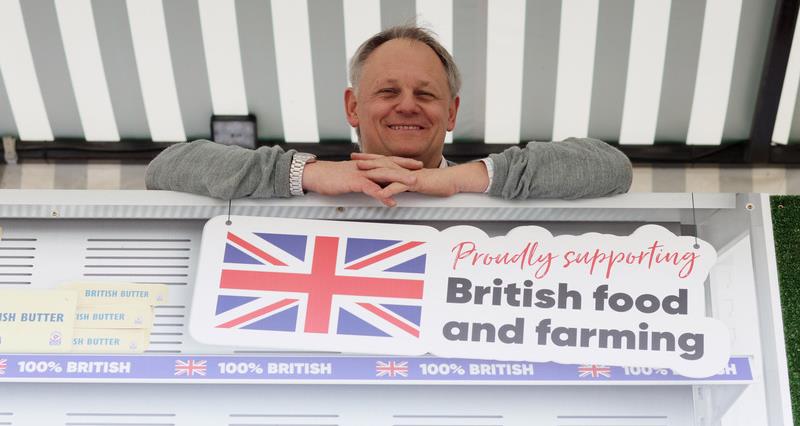The NFU’s annual Back British Farming Day, on Wednesday 11 September, will see people across the country showing their support for our farmers and the food we produce.
Farmers here in the East, and across the country, are continuing to face some major challenges.
They include crops being devastated by drought and frequent floods, ongoing issues with rural crime, sharp rises in energy costs, being undercut by trade deals which have allowed in food produced to standards that would be illegal in this country, a lack of supply chain fairness and, as we are sadly seeing now, the emergence of the bluetongue virus.
Some of these issues have led to farmers’ confidence reaching an all-time low, as was revealed by an NFU survey, published in May. But British farmers are by their nature, the definition of resilience and we are working with the NFU to find solutions.
Key manifesto ask
Public authorities can play a significant role in supporting these efforts by committing to sourcing more British food for organisations such as schools, hospitals, prisons, councils and the military.
One of the NFU’s key pre-general election manifesto asks of the new government was for a commitment to source at least 50% of food into the public sector from British farms.
British farmers have a huge amount of public support - again this year farmers were rated as the second most highly regarded profession by the British public, behind only nurses.
So, it is right for public authorities to use public money to support an industry the public values very highly.
What’s more, I believe it is in both the public and the producers’ interests that our public sector utilises our world-leading British food and farming industry to deliver safe, traceable, nutritious food at affordable prices.
Supporting local food helps the environment
The government would be providing much-needed support for British farmers and growers at a time when business certainty and confidence are at an all-time low while, at the same time, boosting the economy, helping the environment and promoting animal welfare.
Farming contributes £1.4 billion to the economy in East Anglia and provides around 20,000 jobs in Norfolk and Suffolk combined.
Sourcing food locally greatly helps the environment by reducing food miles and carbon emissions.
Supporting British farmers also means supporting animal welfare, as farmers here adhere to world-leading standards in this regard.
More support will also enable British farmers to continue their great work helping wildlife and protecting the countryside.
Working with public authorities
There are already many good examples of public authorities working with British farmers.
In October last year, Suffolk County Council voted to support the county’s farmers and growers by agreeing to source food, where possible, from Suffolk farmers for council-organised events. Councillors also vowed to explore other ways of supporting farmers in Suffolk.
I was pleased to join NFU Suffolk Chair Glenn Buckingham in meeting Suffolk County Council leader Matthew Hicks on farm to discuss this further, in February, and I know the NFU will be keeping a keen eye on seeing how this develops.
The NFU is doing some good work, here in the East and across the country, to engage with many other local authorities and make our case.
Our country needs a successful British farming industry and a long-term commitment to our farmers from the government and local councils will help to achieve that.
Farmers are extremely grateful for the continued support we get from the British public. As the country unites for Back British Farming Day on Wednesday, I hope our decision makers hear that loud and clear.
- Andrew Blenkiron is Managing Director of Elveden Farms Ltd on the Norfolk/ Suffolk border, near Thetford, is a member of the NFU and former NFU Suffolk Chair.

